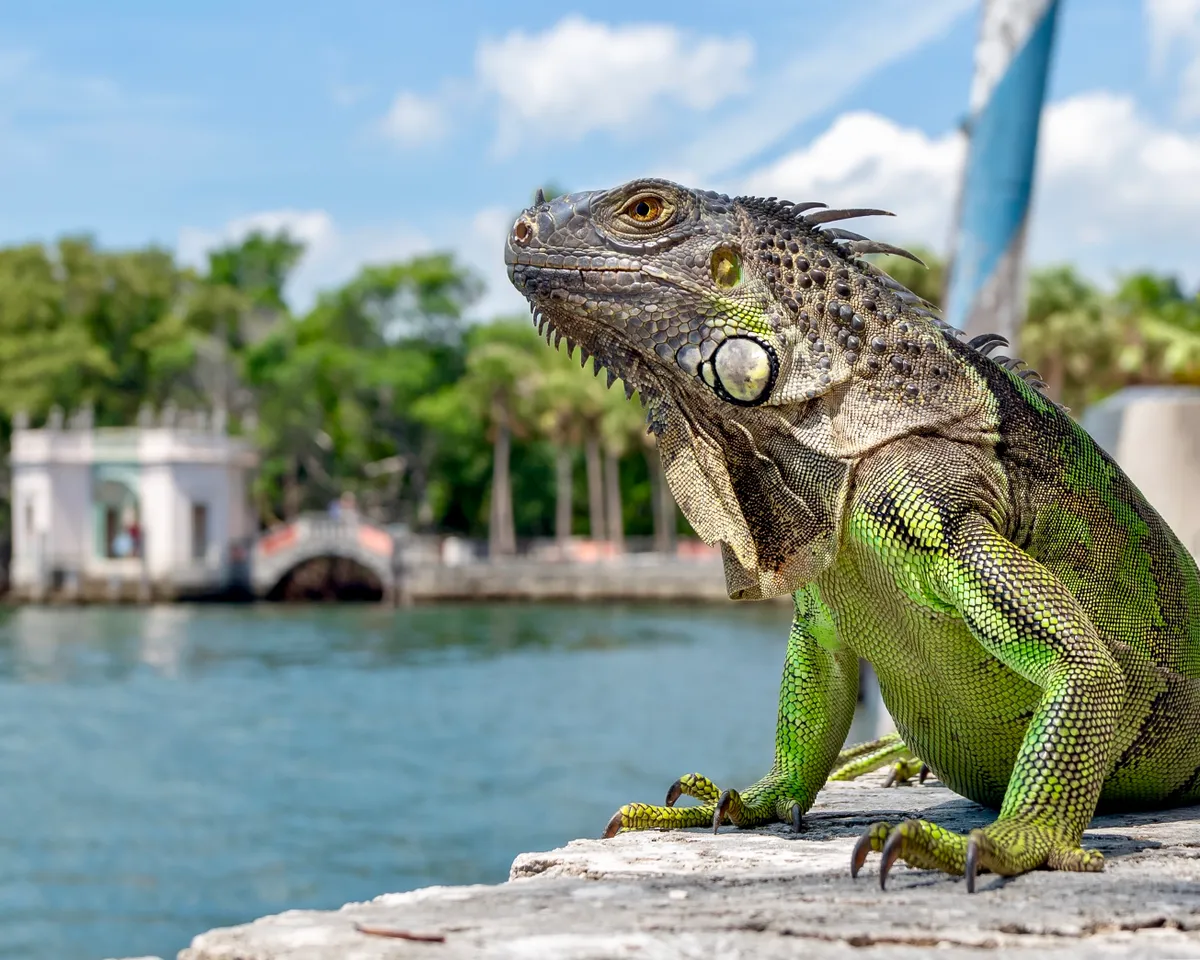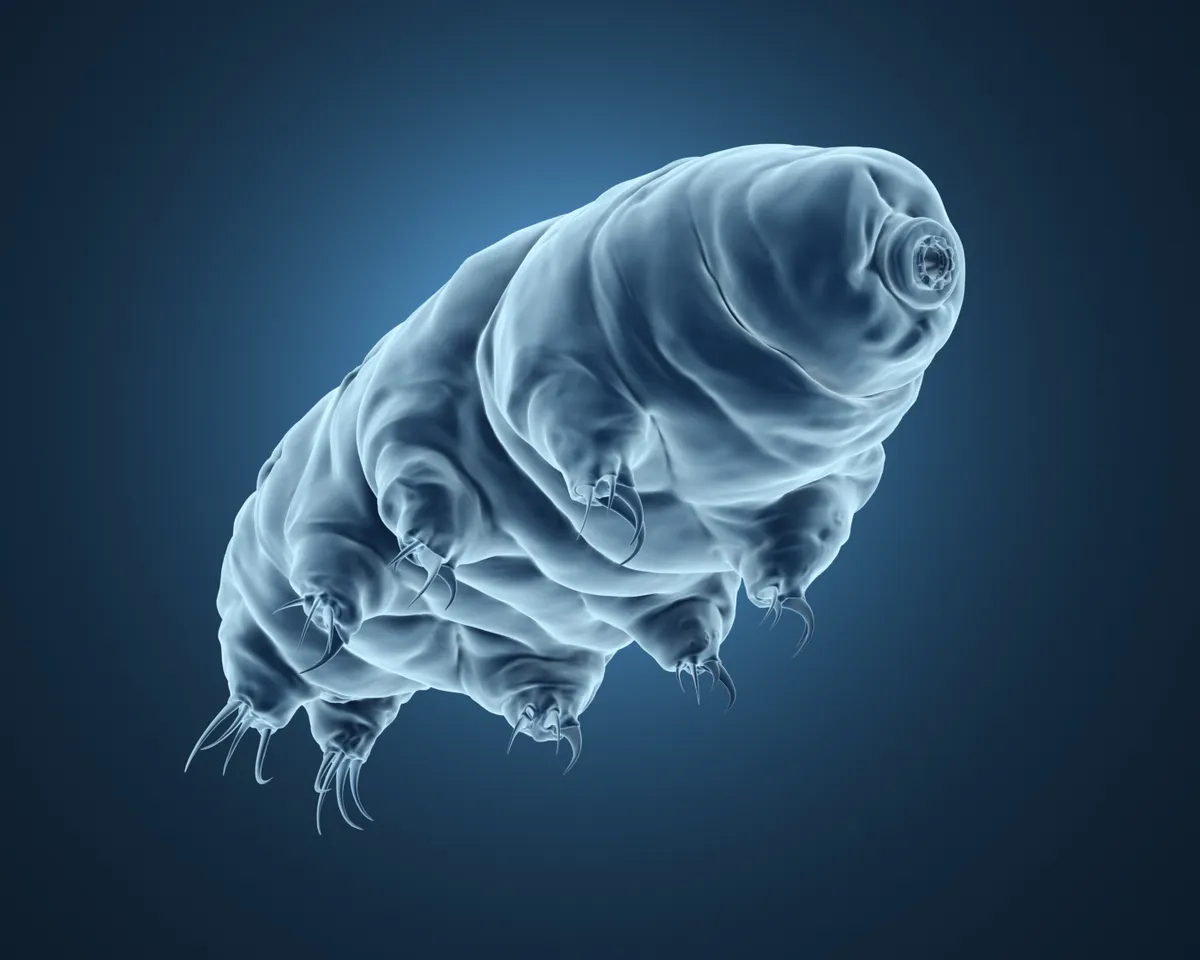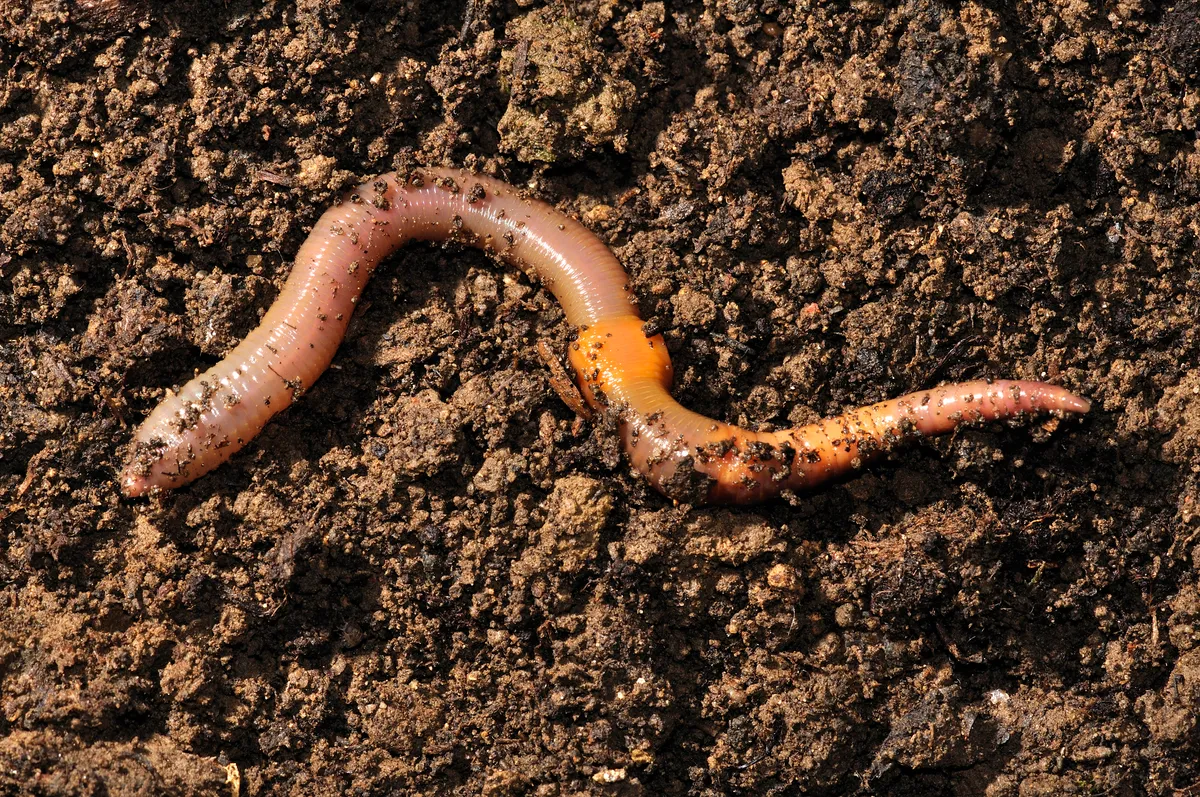1
Florida suffered an iguana-pocalypse
Iguanas have invaded the state and as they have no natural predators, sightings have risen from five in 2007 to 2,700 last year. This year, one poor pool cleaner was shot after an iguana-hunter mistook him for one.
The Florida authorities recommended residents should ‘humanely harass’ them by spraying them with water or reflecting light off CDs at them.

2
There may now be life on the moon
Tardigrades are tiny eight-legged creatures, nicknamed ‘water bears’ or ‘moss piglets’. Thousands were sent up to the moon on an Israeli probe – which promptly crashed onto its surface.
However, tardigrades are almost indestructible. They can cope with high levels of radiation, temperatures from -200 Celsius to 149 Celsius, and they can live without water or air. So they may still be surviving up there.

3
The world’s loneliest duck died
Trevor, the only duck on the Pacific island of Niue, died. He arrived last year, and lived in a puddle, which local firefighters sometimes refilled with their hoses when it got too low. Trevor wasn’t the only lonely animal the world lost – the loneliest snail in the world, George, sadly died too.
But there was good news for a frog called Romeo, thought to be the last of his kind, when scientists finally found a female of his species and got them together.
4
A death sentence was issued to a single bee
When a Turkish bee made its way into the country in a family’s luggage as they came back from holiday, the UK’s National Bee Unit believed it was an Osmia avosetta, a species of mason bee that posed a threat to indigenous bees, and it would have to be hunted down.
The bee then went missing – but the story ended happily when an expert from the National History Museum announced that from the shape of its nest, the bee had probably been a British species all along.
5
Scientists discovered a cockatoo had taught himself how to dance
Snowball the cockatoo became famous online in 2008 for his funky moves. This year, a neuroscientist found out that Snowball had invented the moves himself – he’d taught himself 14 original dance steps.
Snowball’s owner freely confessed that wherever he’d got the moves from, it wasn’t from her.
Read the full paper about Snowball's dancing in Current Biology.
6
The Lewis Hamilton of pigeons was sold for 1.2 million euros
Prices of racing pigeons have been rocketing. And a pigeon called Armando went for over a million euros – he’s been described as ‘the best Belgian long-distance pigeon of all time’. He’s not even racing any more – his sole job will be mating with females to produce the next generation of racing birds.
7
The UK was revealed to be suffering a Wormageddon
A study by the National Environment Research Council found that 42% of British fields have low earthworm biodiversity – and 16% have no deep-burrowing worms whatsoever.

That’s the bad news – but the good news is that a new species of worm was discovered on the Shetland Islands, which has one pair of eyes on its head and another on its bottom.
Read the full paper about farm earthworm surveys in PLOS ONE.
8
Dead alligators were dropped into the sea in the name of science
Scientists sometimes carry out ‘wood falls’ – dropping logs into the ocean to see what turns up to feed on them. A team from Louisiana went a step further and tried a ‘reptile fall’, dropping three dead alligators into the Gulf of Mexico.
Within 24 hours, huge deep-sea woodlice had turned up and started eating the dead ’gators, starting with their armpits and going from there.
9
To help cure their fear of flying, rhinos were given emotional-support humans
The five rhinos in question were being moved from a Czech zoo to their new home in Rwanda. They had been prepared by being introduced to the transport crates months in advance, and were cuddled en route to keep them calm.
The transfer went brilliantly – it was the largest ever transportation of rhinos from Europe to Africa.
10
New Zealand recruited a saxophonist to get endangered birds in a sexy mood
The kākāpō is a rather dozy flightless bird from New Zealand. It’s also critically endangered – so this year the Department for Conservation hired a saxophonist to ‘get our kākāpō in the mood’.
It was a bit of a PR stunt – but a 23-year-old musician was duly hired and dubbed New Zealand’s Saxiest Saxophonist. Stunt or not, it may just have worked – this year 76 chicks were hatched, double the number of 2016.
These facts are extracted from The Book of the Year 2019, by No Such Thing As A Fish, published by Hutchinson, £12.99.
